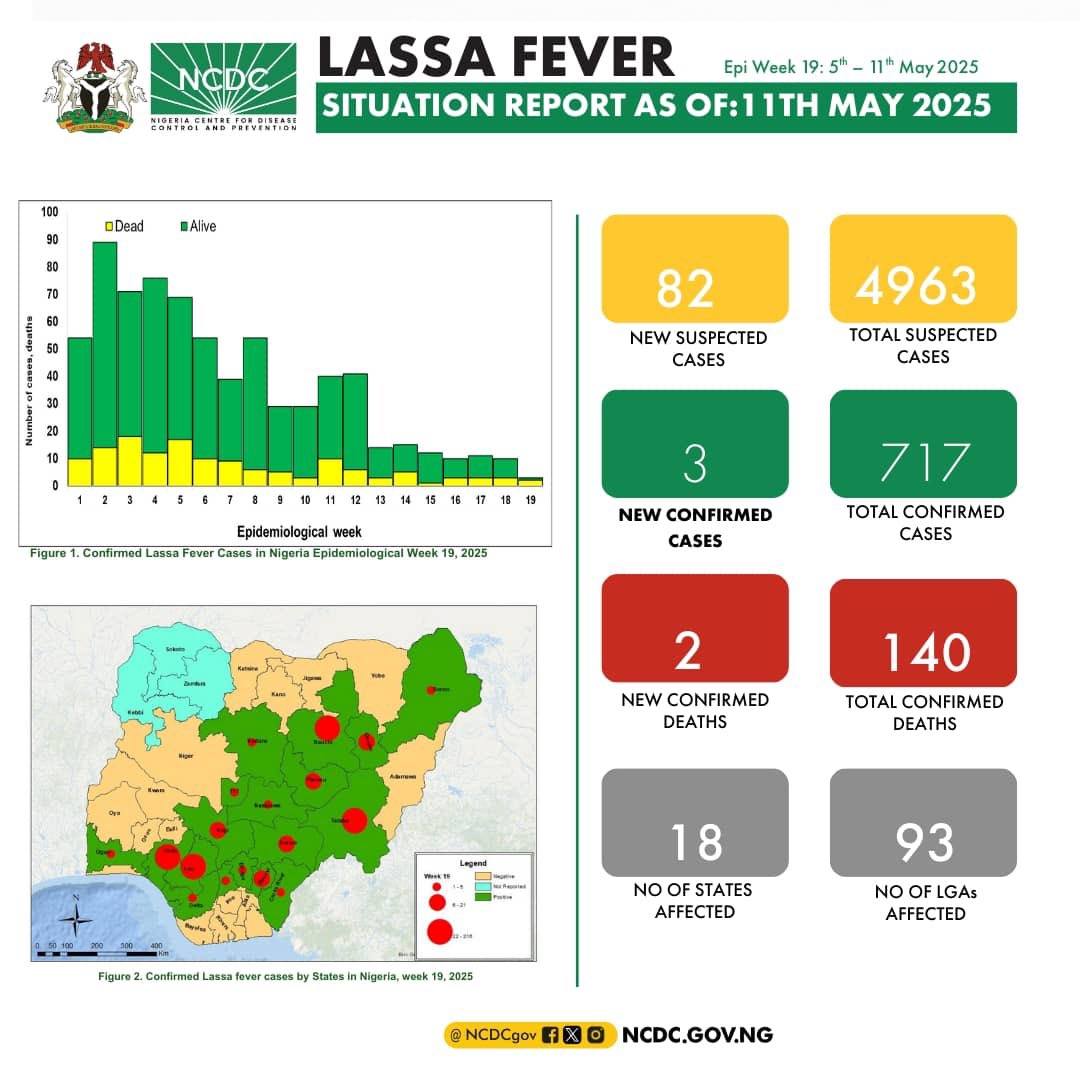Health
Lassa Fever: 82 suspected, 3 confirmed, 2 dead
DDM News

The Nigeria Centre for Disease Control (NCDC) has released its latest Lassa fever situation report, detailing recent developments in the spread of the viral disease across the country.
According to the official report for Epidemiological Week 19, covering the period from May 5 to May 11, 2025, the agency recorded 82 new suspected cases of Lassa fever.
Out of the suspected cases, three were confirmed through laboratory testing. Tragically, two additional deaths were also reported within the same period.
Diaspora Digital Media (DDM) confirms that the disease is currently active in 18 states, affecting a total of 93 Local Government Areas (LGAs) nationwide.
This data underscores the continuing threat Lassa fever poses to public health, especially in areas with weak healthcare infrastructure and limited access to proper sanitation.
Lassa fever is a viral hemorrhagic illness caused by the Lassa virus, a pathogen that is primarily transmitted to humans through contact with food or household items contaminated by rodent urine or feces.
The Mastomys rat, a common rodent in West Africa, serves as the natural reservoir of the virus.
Human-to-human transmission is also possible, especially in healthcare settings where infection prevention and control measures are inadequate.
Symptoms of Lassa fever typically begin with fever and general weakness but can quickly progress to more severe conditions such as bleeding from the gums, respiratory distress, repeated vomiting, facial swelling, and shock.
In some cases, neurological complications may also occur.
The NCDC continues to advise the public to maintain strict hygiene practices, such as storing food properly in sealed containers, keeping homes rodent-free, and washing hands regularly.
Communities are also urged to avoid self-medication and seek immediate medical attention if any symptoms arise.
Health workers are advised to apply standard precautions when handling patients, including the use of personal protective equipment (PPE) to reduce the risk of infection.
As Nigeria enters the peak season for Lassa fever outbreaks, public health authorities remain on high alert.
The NCDC has continued to collaborate with state governments, healthcare workers, and international partners to strengthen surveillance, case management, and public awareness initiatives.
The agency has called on Nigerians to stay informed through verified channels and to take personal responsibility for preventing the spread of the virus.
Further updates and detailed weekly reports are available on the official NCDC website: www.ncdc.gov.ng.
For Diaspora Digital Media Updates click on Whatsapp, or Telegram. For eyewitness accounts/ reports/ articles, write to: citizenreports@diasporadigitalmedia.com. Follow us on X (Fomerly Twitter) or Facebook












